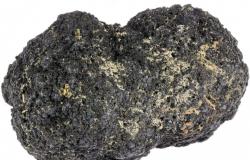
Selma Fátima Melo Rocha, vice-president of the Anti-Doping Sports Court (TJD-AD), was one of four auditors who voted against the suspension of Gabigol, from Flamengo, for attempted anti-doping fraud. In her justification, she pointed out contradictions in the collectors’ testimonies and said it was “evident” that the officials of the Brazilian Doping Control Association (ABCD) were lying in their testimony with the intention of incriminating the attacker at “any cost”.
“Sometimes they claim that they were prevented from escorting the Athlete, other times they deny this fact. Each DCO blames the other on the responsibility of escorting the Athlete to the room. The DCO has the obligation to accompany the Athlete. It was their responsibility, regardless of any situation presented. It should be noted that they didn’t even have enough DCOs to accompany all the athletes who were tested that day. It is therefore clear that they are lying, and their testimony should be completely discarded. I see malicious behavior on the part of the DCOs to incriminate the athlete. Athlete at any cost. But to be incriminated, very serious facts must be presented, which were not the case in this case”, Selma pointed out in the ruling on the case to which the ge website had access.
With the result of 5 votes to 4, Gabigol is serving a two-year suspension away from football since the trial on March 25th at the TJD-AD. The five votes in favor of conviction were based on what President João Antonio de Albuquerque e Souza classified as “the sum of four non-conforming behaviors”, which “leaves no doubt about an intention to prevent the collection and to affect or make impossible the analysis of the sample”. His vote was the last and decided the conviction.
Understand voting
Daniel Chierighini was the rapporteur and stated that Gabriel’s conduct in the urine sample process would have been one of the pivots of the suspension. According to him, “in the first attempt to collect the athlete’s urine sample, before the two-hour period stipulated in the biological passport for blood collection, the athlete would have taken, on his own, the collection vessel and, going to the bathroom, he also turned his back to the officer. He also threw the collection vessel without providing the sample, leaving the room”.
After that, a second collection attempt was made, “the athlete would have left the bathroom with the collection vessel, placing it on the processing table. He would then have returned to the bathroom without following the official’s instructions and that the officials they remained away from the collection vessel, but with visual contact with the athlete. (…) When asked whether the athlete prevented the official from accompanying him to the collection site, one of the officials responded in the context of the supplementary report that he did not, while the other responded that he did not. he replied yes. Which leads us to the preliminary question about what, in fact, the athlete’s conduct towards the escort was.”
The player’s defense showed the security cameras with his arrival at the team’s CT at 7:52 am, about an hour before the ABCD collectors. Gabriel’s representatives also claim that he was in physical therapy, and therefore could not take blood and urine tests at that time.
Among the four votes against the suspension, in addition to that of the vice-president of the court, are that of auditor Fernanda Farina Mansur, who noted “the difficulty in elucidating how the events really transpired that day”; that of auditor Jean Batista Nicolau who claimed to have “no doubts” that the collection procedure “went smoothly”; and that of Ivan Pacheco, who discussed that there were “many contradictions in the statements of the Doping Control Officers regarding the follow-up and obedience of the International Standards for Collection of the aforementioned athlete’s examination”.
In addition to the case’s rapporteur, the auditor Alexandre Ferreira voted in favor, who highlighted that “the athlete acted sponte propria, that is, intentionally”; Martinho Neves Miranda understood that “no testimony or evidence brought by the team that defended the athlete was capable of refuting the official narrative”; Vinicius Loureiro Morrone highlighted the player’s considered rude behavior; and finally that of the president, who raised four behaviors that were not in line with the rules, namely:
- That the reported athlete failed to present himself and ignored doping control officers before training began;
- That, after training, he went to lunch and took a long time to present himself to the doping control team, having avoided the presence of officials on several occasions, which would have made a proper and complete escort impossible;
- That the athlete would have made urine collection difficult by standing with his back to the doping control officer and not allowing full viewing during the procedure;
- That, after the athlete had collected urine, he had failed to comply with the instructions of doping control officials by leaving the collection vessel open and uncapped and returning to the bathroom to finish urinating.
The trial ruling informs that, despite divergent votes among the nine auditors, they were unanimous, identifying “rude” and “rude” treatment of the Flamengo attacker. After the punishment at the TJD-AD, the athlete’s defense appealed to the Sports Arbitration Court (CAS) at the beginning of April with a request for a suspensive effect so that Gabriel could be able to play.
Tags: Auditor Gabigols suspension vote inspectors lied incriminate cost
--




